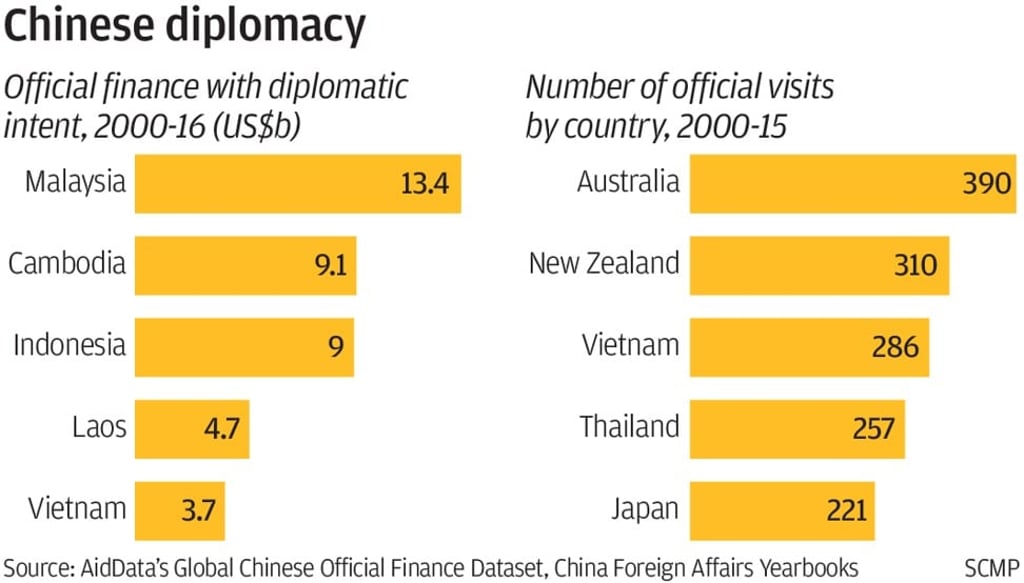Is China undermining its neighbours’ trust by buying political influence with foreign aid?
China secured valuable allies and partnerships by pouring US$45.8 billion into infrastructure investment in the East Asia and Pacific region from 2000 to 2016

While China secured valuable allies and partnerships by pouring US$45.8 billion into infrastructure investment in the East Asia and Pacific region through the first 16 years of this century, the influence it has gained over regional domestic politics has its neighbours watching it warily, according to US researchers.
The suspicion comes as China strives to create a narrative that tells the story of its peaceful rise rather than its ascent into a regional “threat”, according to AidData, a US-based project that tracks flows of development assistance.
In its latest report, AidData noted that instead of handing out money “opportunistically”, Beijing strategically deploys a mixture of public diplomacy tools – based on an assessment of potential risks and rewards – to curry favour with countries that represent high-value market opportunities for China.
This finding helps to explain why China’s biggest regional rivals – Japan, South Korea and Australia – have received more, and more diverse, diplomatic contact from it, including official visits, than other countries that are close to it geographically, such as Indonesia, Cambodia, Malaysia and Thailand.
“These countries (Japan, South Korea and Australia) matter to Beijing because of their ability to undermine or strengthen China’s geostrategic position in light of their economic, diplomatic or military assets,” said Samantha Custer, the report’s lead author and AidData’s director of policy analysis.

